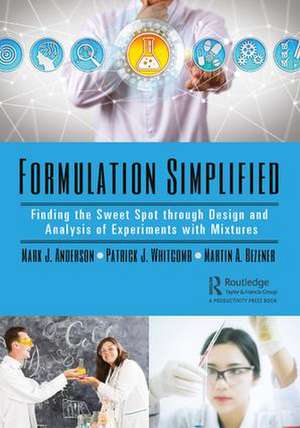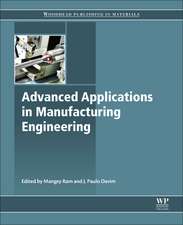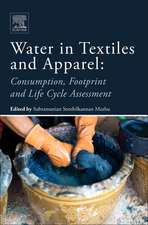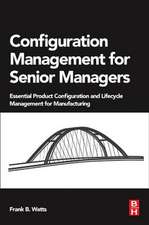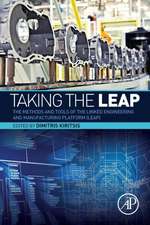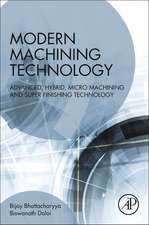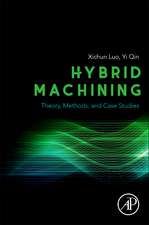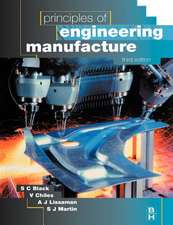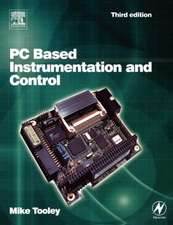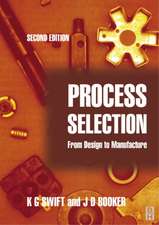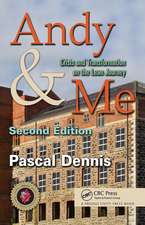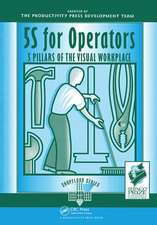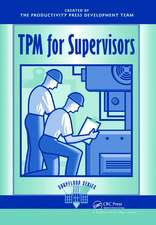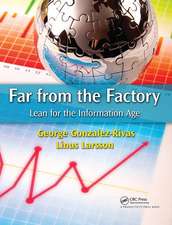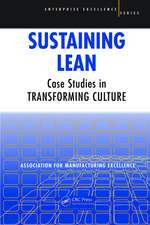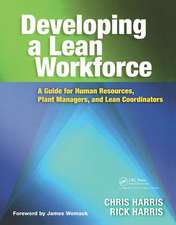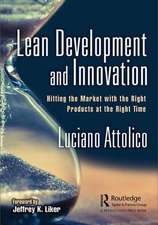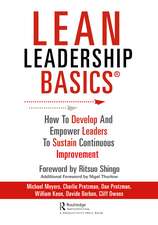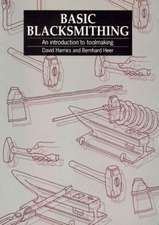Formulation Simplified: Finding the Sweet Spot through Design and Analysis of Experiments with Mixtures
Autor Mark J. Anderson, Patrick J. Whitcomb, Martin A. Bezeneren Limba Engleză Paperback – 20 apr 2018
| Toate formatele și edițiile | Preț | Express |
|---|---|---|
| Paperback (1) | 465.86 lei 6-8 săpt. | |
| Taylor & Francis – 20 apr 2018 | 465.86 lei 6-8 săpt. | |
| Hardback (1) | 1113.12 lei 6-8 săpt. | |
| Taylor & Francis – 20 apr 2018 | 1113.12 lei 6-8 săpt. |
Preț: 465.86 lei
Nou
Puncte Express: 699
Preț estimativ în valută:
89.14€ • 93.07$ • 73.78£
89.14€ • 93.07$ • 73.78£
Carte tipărită la comandă
Livrare economică 05-19 aprilie
Preluare comenzi: 021 569.72.76
Specificații
ISBN-13: 9781138056015
ISBN-10: 1138056014
Pagini: 208
Dimensiuni: 178 x 254 x 11 mm
Greutate: 0.37 kg
Ediția:1
Editura: Taylor & Francis
Colecția Productivity Press
Locul publicării:Oxford, United Kingdom
ISBN-10: 1138056014
Pagini: 208
Dimensiuni: 178 x 254 x 11 mm
Greutate: 0.37 kg
Ediția:1
Editura: Taylor & Francis
Colecția Productivity Press
Locul publicării:Oxford, United Kingdom
Public țintă
Professional and Professional Practice & DevelopmentCuprins
Preface; Chapter 1: Getting Your Toe into Mixtures; Chapter 2: Triangulating Your Region of Formulation; Chapter 3: Simplex Lattice Design; Chapter 4: Constrained Mixtures; Chapter 5: Optimal Design; Chapter 6: Multicomponent Linear Constraints; Chapter 7: Multiple Response Optimization and Quality by Design; Chapter 8: Mixture Screening; Chapter 9: Mixture and Process, Amounts or Categorical FactorsChapter 10: Combining Mixture and Process Variables as Split Plots; Chapter 11: Advanced Tools; Chapter 12: Practical AspectsGlossaryReferences; Index; About the Software
Descriere
Many chemists – especially those most brilliant in their field – fail to appreciate the power of planned experimentation. They dislike the mathematical aspects of statistical analysis. In addition, these otherwise very capable chemists also dismissed predictive models based only on empirical data. Ironically, in the hands of subject matter experts like these elite chemists, the statistical methods of mixture design and analysis provide the means for rapidly converging on optimal compositions. What differentiates Formulation Simplified from the standard statistical texts on mixture design is that the authors make the topic relatively easy and fun to read. They provide a whole new collection of insighful original studies that illustrate the essentials of mixture design and analysis. Solid industrial examples are offered as problems at the end of many chapters for those who are serious about trying new tools on their own. Statistical software to do the computations can be freely accessed via a web site developed in support of this book.
